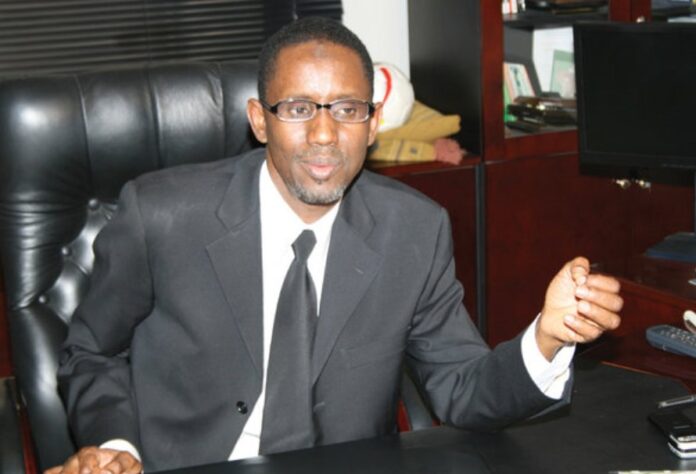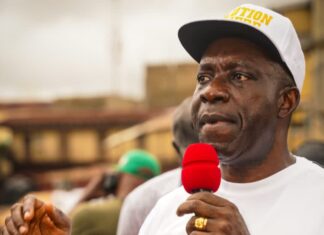Ribadu contradicts CBN Gov, blames speculators for instability in forex market
By Emma Ogbuehi
In another public outing underscoring the helplessness of the Federal Government over the fluctuating fortunes of the Naira against other leading currencies of the world, the Office of the National Security Adviser (ONSA) has fingered activities of speculators at local and international levels as undermining the measures put in place by the Central Bank of Nigeria (CBN) to stabilize the foreign exchange market and stimulate economic activities in the country.
The explanation by the ONSA marks a sharp contradiction to an earlier stance by the Governor of the Central Bank of Nigeria (CBN), Dr Olayemi Cardoso in which he claimed that the increase in exchange rate between the naira and dollar is due to the increase in Nigerian students who study abroad and medical trips embarked on by Nigerians.
“There’s increasing demand for dollars with an increase in Nigerian students studying abroad, projected to have exceeded 100,000 by 2022. Given this data, 28.6bn dollars. Education and medical tourism also leading to increasing demand for dollars”, Cardoso had stated.
According to the ONSA the activities of spectators were carried out through various channels, thereby exacerbating the depreciation of the Nigerian Naira and contributing to inflation and economic instability.
READ ALSO:
FG to audit N23 trillion Ways and Means debt
Consequently, ONSA said it is working jointly with the Central Bank of Nigeria (CBN) to wade into the crisis with a view to combating the speculative activities arising from the market.
The Head, Strategic Communication, Office of the National Security Adviser, Zakari Mijinyawa, made this known in a statement, titled, ‘Joint Effort Between ONSA and CBN to Safeguard Nigeria’s Foreign Exchange Market and Combat Speculative Activities’.
It reads, “In a concerted effort to safeguard Nigeria’s foreign exchange market and combat speculative activities, the Office of the National Security Adviser (ONSA) and the Central Bank of Nigeria (CBN) are joining forces to address challenges impacting the nation’s economic stability.
“The CBN’s proactive measures to stabilize the foreign exchange market and stimulate economic activities have been commendable.
‘However, the effectiveness of these initiatives is being undermined by the activities of speculators, both domestic and international, operating through various channels, thereby exacerbating the depreciation of the Nigerian Naira and contributing to inflation and economic instability.
“Recall that, to address the exchange rate volatility, the CBN initiated a comprehensive strategy to enhance liquidity in the forex market, including unifying FX market segments, clearing outstanding FX obligations, introducing new operational mechanisms for Bureau De Change operators, enforcing the Net Open Position limit for commercial banks, and adjusting the remunerable Standing Deposit Facility cap.
“To reduce the pressure on the naira, the Economic and Financial Crimes Commission (EFCC) has raised a 7,000-man special task force across its 14 zonal commands to clamp down on dollar racketeers.
“Yet, recent intelligence reports have highlighted continued illicit activities within the Nigerian foreign exchange market, the ONSA and CBN are therefore embarking on this collaborative approach to tackle these infractions.
“This partnership will involve a coordinated effort with key law enforcement agencies, including the Nigeria Police Force (NPF), the Economic and Financial Crimes Commission (EFCC), the Nigeria Customs Service and the Nigeria Financial Intelligence Unit (NFIU).
“The primary objective of this alliance is to systematically identify, thoroughly investigate and appropriately penalize individuals and organizations involved in wrongful activities within the FX market.
“By leveraging the expertise of these agencies, we aim to deter malicious practices, protect investor interests, and promote sustainable economic growth.
“This joint effort underscores the commitment of the Nigerian government to improving its Anti-Money Laundering and Counter Financing of Terrorism (AML/CFT) framework and exiting the grey list of the Financial Action Task Force.
“In addition, the efforts will make progress in ensuring a stable and transparent foreign exchange market, fostering investor confidence, and advancing the nation’s economic well-being.”















